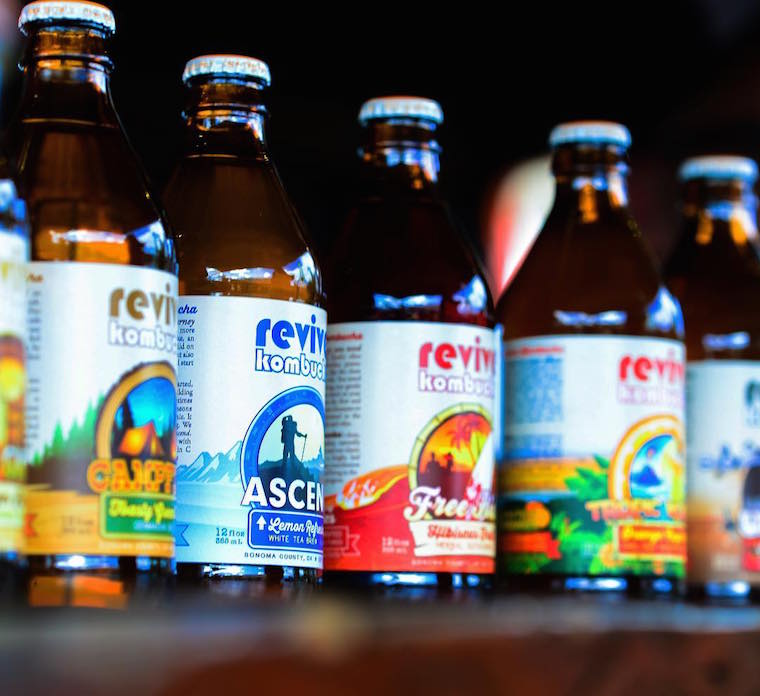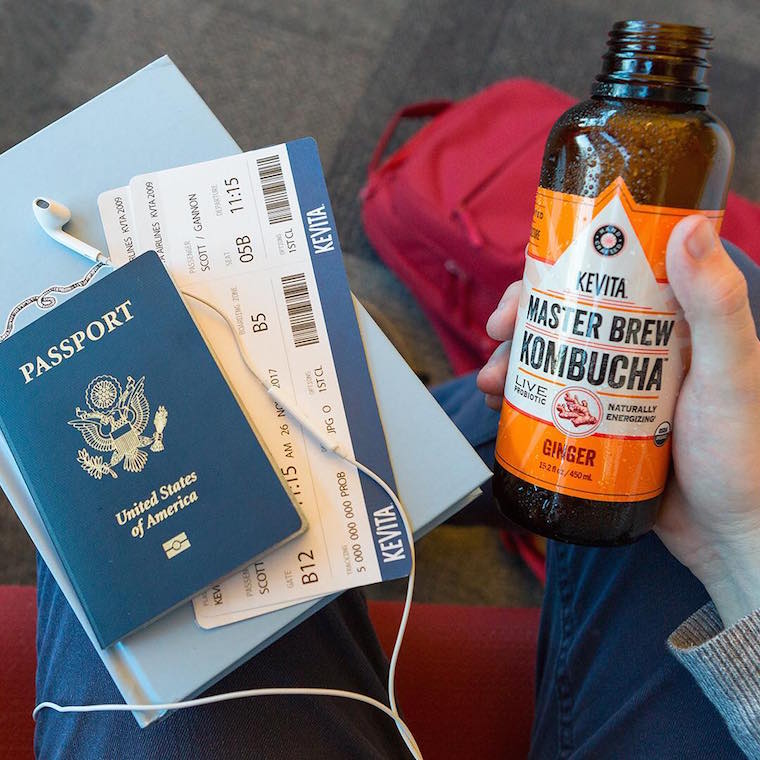Mega Companies Are Investing in Small, Healthy Food Brands—Are Your Indie Faves Selling Out?
Some headlines you may or may not have seen: PepsiCo acquiring Health Warrior and KeVita kombucha (The company also owns Quaker Oats, which will be getting in on the oat milk trend in 2019.); General Mills investing in Purely Elizabeth, No Cow, Farmhouse Culture, and most recently, Kite Hill; Mars investing in Kind; and Peet's investing in Revive Kombucha. Some pretty strange bedfellows, right?
What exactly does it mean for you that the owner of Lucky Charms is now investing in your favorite gluten-free adaptogenic granola? Or that your trusted small batch kombucha brand is being brought to the masses? Here, the CEOs from all the companies named here—on both sides of the partnerships—give an honest look behind the curtain, revealing exactly how the partnerships work and, most importantly, what it means for you.
Is it a good thing when big businesses invest in your favorite healthy brands—or will it change what you love about them? Keep reading to find out.

Why it's happening
Companies like General Mills and Nestle already house long lists of brands under their umbrellas, so it's natural to wonder why they'd go after healthy startups instead of making tweaks to their existing products. But the truth is, they're doing both. Nestle is cutting the sugar in its candy by a whopping 40 percent—that's major. And Kraft, the maker of your childhood fave meal of fluorescent mac and cheese, is ditching artificial preservatives and colors and will use spices like turmeric instead. So, to be fair, the moves mega companies are making toward health are happening in a variety of ways.

{{post.sponsorText}}
But similar to how you want to tell all your friends (and post to Instagram!) when you learn about an awesome new food, these companies get excited when they discover a cool brand, too—they just spread the word in a much different (and bigger way). "As one of the world’s leading food and beverage companies, we have the responsibility and opportunity to help people eat and drink better every day, which includes looking for innovative ways to make it possible for more people to access nutritious choices," says Seth Kaufman, the president of PepsiCo's North American nutrition division of the decision to acquire KeVita.
"We have the responsibility and opportunity to help people eat and drink better every day." —Seth Kaufman, president of PepsiCo's North American nutrition division
According to Eric Lauterbach, the chairman of Coldcraft and president of consumer at Peet's Coffee, the brand viewed investing in Revive as a way to stake a claim in another craft-brewed beverage market. "Kombucha is a natural consumer adjacency for cold brew," he says, because his target consumers tend to love both. "And knowing the increasing value consumers are placing in health and wellness products, and how our own line of coffee—from beans to bottled—meets those needs, our investment in Revive reflects our belief in the strength and promise of the brand."
Of course, these investments and the push toward healthier options aren't just being made out of the goodness of their hearts—it's clear wellness is booming and the demand for nutrient-dense food is growing. Sure, processed and sugar-filled foods are still selling big-time, but it pays (literally) to diversify.
So, what happens once a deal is made? Is it similar to when your fave indie band got signed to a big label and was suddenly everywhere and, well, different?

What an acquisition or investment means for your fave healthy brands
Daniel Katz was only 20 when General Mills offered to financially back his protein line No Cow. (He's 22 now and founded his company at the ripe old age of 19.) "As soon as we got the partnership underway, they pretty much allowed full access to anything General Mills as a company has to offer," Katz says. When he decided to give his brand a redesign, he was able to tap General Mills' innovation and design teams—something he says would have cost him a lot of money otherwise. Other ways General Mills gave a leg up: managing vendor relationships and shipping costs.
As far as changes to the products themselves, Katz says General Mills wanted him to alter...well, nothing. "The concept of them buying into what we were doing is a key point," he says. "One of the commitments they made to us early on was that they wouldn't start changing the ingredients, adding sugar, or doing other things [you might expect]. Overall, the partnership has only changed things for the better, not worse."
"One of the commitments they made to us early on was that they wouldn't start changing the ingredients, adding sugar, or doing other things [you might expect]." —Daniel Katz, founder of No Cow
John Haugen, the vice president and general manager of General Mills' 301 Inc. division and the interim CEO of Kite Hill, echoes that sentiment from the other side of the deal. "We are an investor in [these brands], and by being an investor, we've really bought into what's great about them," he says. "We want them to run their businesses."
It turns out General Mills' stance is not the exception. "While a global partnership with Mars will help accelerate our entrance into new countries, it will not change our approach to innovation," says Kind CEO Daniel Lubetzky of his company's recent partnership. "All Kind snacks will continue to be developed under my guidance."
Revive CEO Sean Lovett says the investment he's received from Peet's has actually enabled him to focus more on his mission: "If you're constantly looking for money, it could cause you to alter your strategy," he says. "It’s allowed us to be genuine and stay true to our purpose and really run super fast, laser-focused toward [our] goal."
To Lubetzky—and the other healthy brands included in this article—the deals mean they're able to get their products into the hands of more people. Katz says that before General Mills' investment, No Cow was only available in CVS, The Vitamin Shoppe, and GNC. Soon, it will be in Wegmans and Sprouts, too. Lovett says the financial backing has upped distribution for Revive, too. And as far as what's changed in the product: nothing.

What it means for you
So far, the deals seem like a win for both indie brands and the mega companies that buy them. But what about you? Is it a win for you, too? Yes! The more resources available, the more places you'll start seeing your fave healthy go-tos pop up. (Revive is even offered on tap at several gas stations out west.)
One of the criticisms of the Amazon-Whole Foods acquisition is that small, local brands might lose the shelf space they have now. With that threat looming, these investments could mean more than ever. It's not the only way healthy brands are getting creative, too: Online retailer Brandless is able to sell everything for $3 or less by getting the goods straight from suppliers. And co-working culinary space Pilotlight gives startup food brands a place—and path—to grow their businesses.
"This is a very exciting time to be in food," Haugen says. "Ultimately our success will be shown through the brands that we work with. The proof is in the pudding—well, in this case, yogurt."
Originally published January 10, 2018. Updated October 31, 2018.
Kroger has gotten big into wellness, too. And so has Wal-Mart.
Loading More Posts...